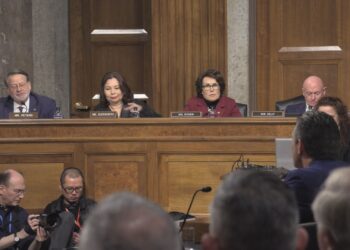WASHINGTON, D.C. – According to the Southern Poverty Law Center, there are more than 700 hate groups in the U.S. including some based in Michigan. Congressional members on both sides of the aisle are concerned about the growing numbers of these groups.
In a video montage displayed in a House Oversight subcommittee hearing, the chairman, Rep. Jamie Raskin (D- MD), said the video highlights the proliferation of extremist violence against Americans. The subcommittee focused on white supremacy and anti-democratic groups in the U.S., adding the presence of these groups continue to grow.
“We hear a lot about threats to our democracy and constitution these days, those threats are real,” said Rep. Nancy Mace (R- SC).
According to the Department of Homeland Security, lone offenders and small groups motivated by a range of ideological beliefs and/or personal grievances continue to pose a persistent and lethal threat to the homeland. Rep. Raskin lists off a few incidents:
“On May 14, 2022, an 18-year-old white supremacist named Payton Gendron jacked up on line propaganda about the racist and antisemitic great replacement theory, entered a Tops supermarket in Buffalo with an illegally modified AR 15 semi-automatic rifle and murdered 10 African American people, wounding three others,” said Rep. Raskin. “Michigan governor Gretchen Whitmer was the target of a kidnapping assassination plot by racist anti-government extremists. In prior hearings over the last three years long before violent insurrectionist bearing Confederate battle flags overran the Capitol on January 6, 2021, we found that violent white supremacy and its popular anti-democratic extremism today constitute the most serious domestic terror threat facing our people.”
Witnesses in the hearing explain that conspiracy theories, like the great replacement theory, which is the belief there’s a plan to undermine white political power and white existence, remains the energizing principle behind white nationalism. Witnesses encourage congress to step in by making sure social media giants like Twitter and Meta are doing their part to combat hate online. Another suggestion was that congress can support initiatives and nonprofits to combat these issues.







